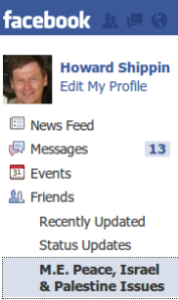 CNN has an article entitled “The Internet and the ‘End of Privacy'” which has some interesting facts, raising interesting points, but does not really go to the bottom of the issue. Louis Gray has an article that shows how transparency works to his benefit.
CNN has an article entitled “The Internet and the ‘End of Privacy'” which has some interesting facts, raising interesting points, but does not really go to the bottom of the issue. Louis Gray has an article that shows how transparency works to his benefit.
It struck me that the persons who stand to gain most from total transparency are those who are the best suited for their societies. The willingness to share the significant details of their lives provides them with the opportunity to prove this suitedness, and therefore can serve as an asset when applying for a job, finding a partner, running for office, or whatever. The more social networking sites succeed in prizing information about ourselves into the open, the greater will be the tendency to base selections on people who are both well within the radar of the internet and have a clean track record (within the parameters that companies, potential partners, acceptance committees and others may set).
Eric Schmidt’s much-quoted remark from last December that “If you have something that you don’t want anyone to know, maybe you shouldn’t be doing it in the first place” epitomizes well the limited imagination of those who are in charge of the social networking tools we use. Since we still live in a society which has fairly narrow constraints about what constitutes acceptable social behaviour, political views, religious beliefs, etc., and the world of potential employers, immigration officers, juries, constituencies, housing committees, etc. may be even narrower, glass walls best favor those who fall well within the conventions.
Those who can afford to take responsibility for their nonconventional behavior, divergent political views, heretical religious beliefs, outrageous behaviour, etc. may also derive benefit from transparent transactions with social media, of course, as long as they are operating within the parameters of what is acceptable in their chosen sub-cultures.
(The illustration is the book cover of Evgeni Zamyatin’s 1920s science fiction novel, We, whose characters live in glass-walled flats.)

 CNN has an article entitled
CNN has an article entitled 
